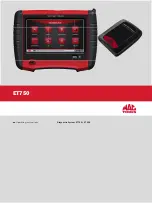
3
Important Safety Information
4/20/15
RC3615 (540 RPM) and RCM3615 (1000 RPM) Rotary Cutters 330-502M
These are common practices that may or may not be applicable to the products described in
this manual.
Prepare for Emergencies
▲
Be prepared if a fire starts.
▲
Keep a first aid kit and fire
extinguisher handy.
▲
Keep emergency numbers for
doctor, ambulance, hospital, and
fire department near phone.
Avoid High
Pressure Fluids Hazard
▲
Escaping fluid under pressure can
penetrate the skin causing serious
injury.
▲
Avoid the hazard by relieving
pressure before disconnecting
hydraulic lines or performing work
on the system.
▲
Make sure all hydraulic fluid
connections are tight and all
hydraulic hoses and lines are in
good condition before applying
pressure to the system.
▲
Use a piece of paper or
cardboard, NOT BODY PARTS, to
check for suspected leaks.
▲
Wear protective gloves and safety
glasses or goggles when working
with hydraulic systems.
▲
DO NOT DELAY.
If an accident
occurs, see a doctor familiar with
this type of injury immediately. Any
fluid injected into the skin or eyes
must be treated within
a few hours or
gangrene may
result.
Tire Safety
▲
Tire changing can be dangerous
and should be preformed by
trained personnel using the
correct tools and equipment.
▲
When inflating tires, use a clip-on
chuck and extension hose long
enough to allow you to stand to
one side and NOT in front of or
over the tire assembly. Use a
safety cage if available.
▲
When removing and installing
wheels, use wheel handling
equipment adequate for the
weight involved.
Use Seat Belt and ROPS
▲
Operate only tractors equipped
with Roll-Over Protective
Structure (ROPS) and seat belt.
▲
Fasten seat belt snugly and
securely to help protect against
serious injury or death from falling
and tractor overturn.
▲
Wearing protective equipment
such as safety shoes, safety
glasses, hard hat, and ear plugs is
highly recommended.
911
Wear
Protective Equipment
▲
Wear protective clothing and
equipment appropriate for the job.
Clothing should be snug fitting
without fringes and pull strings to
avoid entanglement with moving
parts.
▲
Prolonged exposure to loud noise
can cause hearing impairment or
hearing loss. Wear suitable
hearing protection such as
earmuffs or earplugs.
▲
Operating equipment safely
requires the operator’s full
attention. Avoid wearing radio
headphones while operating
machinery.
Keep Riders Off
Machinery
▲
Never carry riders or use
machinery as a person lift.
▲
Riders obstruct operator’s view.
▲
Riders could be struck by foreign
objects or thrown from the
machine.
▲
Never allow children to operate
equipment.






































